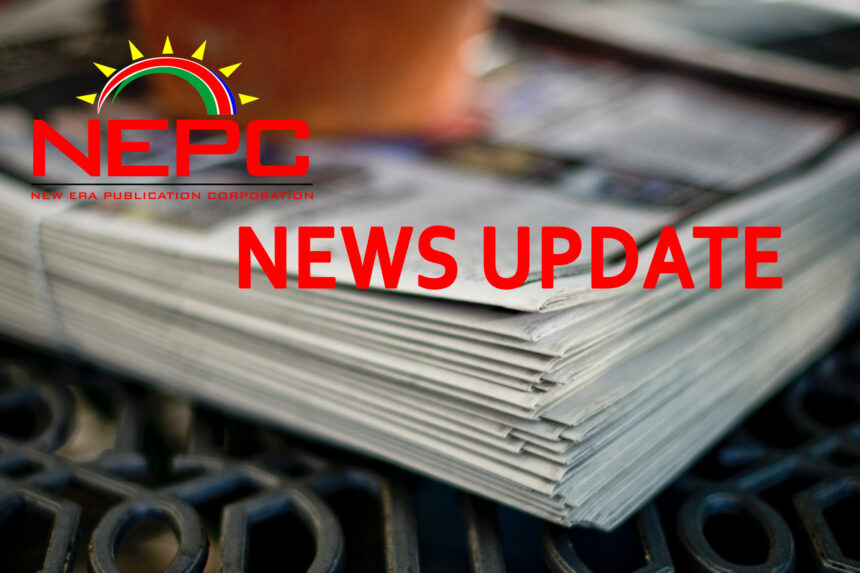Opposition parties have highlighted high unemployment, debt, costly living and the adaption to green energy amidst the country’s recent oil and gas discoveries as matters which received short shrift from finance minister Iipumbu Shiimi in the 2023/24 Appropriation Bill.
Acknowledging the country’s difficult economic climate, Popular Democratic Movement (PDM) leader McHenry Venaani believes Shiimi did not see it fit to acknowledge these challenges, nor offer convincing solutions to them. He said the country needs new, bold thinking to initiate economic reforms that will drive economic transformation.
“The debt crisis has reached crisis levels in our country. This is a testament to the irresponsible fiscal policies of this government. Namibia’s debt threshold (public debt stock) is 35% of the GDP, and it is worrisome that we are now at 70% – double the threshold. This is fiscal irresponsibility,” he charged.
According to the World Economic Forum’s Global Risks Report of 2023, the debt crisis, cost-of-living crisis, unemployment and livelihood crisis, prolonged economic stagnation, amongst others, add to Namibia’s rank as the second-most unequal country in the world. “Minister Shiimi fails to make any meaningful propositions and clear targets on how his government intends to tackle the dismal performance in employment, health, education, agriculture, productivity and poverty. What is your solution, minister, to the 22% unemployment rate, which is 40% among the youth? Why are you not providing us with targets in terms of how many young Namibians you intend to create employment and entrepreneurial opportunities for with this budget?” he questioned the finance minister.
The high unemployment rate in Namibia, particularly amongst the youth, has reached crisis proportions. To address this issue, Venaani proposed the introduction of an Unemployment Benefit Grant (UBG) of N$1,500, which could serve as a safety net for many young unemployed people.
He also suggested that Government finds a better way or renegotiates better deals to get resources which go straight to the people. Probed on how his proposal will be funded, Venaani told New Era yesterday that Namibia has enough resources to support the proposed grant, and the country should help its people in one way or another.
He criticised the finance minister for “not knowing” what pro-sustainability, pro-growth and pro-poor is.
His colleague, Inna Hengari, said unemployment has reached crisis proportions. She suggested that “the President must declare a state of emergency so that the country’s resources can be directed to this crisis.”
Across the aisle, Swapo’s Ephraim Nekongo earlier in the week agreed with his PDM colleagues. He told this paper that “at this point, the most concerning issue, number one, in our country is youth unemployment. We are at a point where as government, we must accelerate our efforts to curb youth unemployment. We, therefore, expect President Hage Geingob to drive us in a direction that will guarantee jobs for our young people. We expect the President’s State of the Nation Address (Sona) to highlight the importance of the agricultural sector, and reiterate government’s commitment to ensuring food security and independence,” said the youthful MP.
President Geingob will deliver his penultimate Sona in parliament this afternoon. Another opposition member and leader of the Landless People’s Movement (LPM), Bernadus Swartbooi, agreed that Namibia should capitalise more on its mineral wealth.
He believes that Namibia, as a small country with major muscles to show off in the global energy and minerals industry, should follow integrated co-management business principles in dealing with global capital and investments. Swartbooi thinks Namibia should, identify the right co-management approach, and make the right policy choices for the ecosystem approach to environmental justice nexus in natural resources management.
He believes that Namibia could economically depend on oil and gas and green hydrogen exports for a giant leap towards economic development and diversification.
Swartbooi thus urged the central government to have a strategy or plan to stimulate massive job-creation, infuse housing development using private capital investments, invest in infrastructure, and add value to oil and gas discoveries.
Similarly, leader of the Rally for Democracy and Progress (RDP) Mike Kavekotora said if Namibia is serious in growing the economy to sustainable
levels, it needs to address illicit financial flows in general, and corruption in particular.
“There are just too many leakages and outflows in our economy. You need to structurally adjust the economy, and make a policy pronouncement on addressing this franchise economy. You must create an environment conducive to Namibians’ participation in the mainstream of the economy,” he stated.
-ashikololo@nepc.com.na



